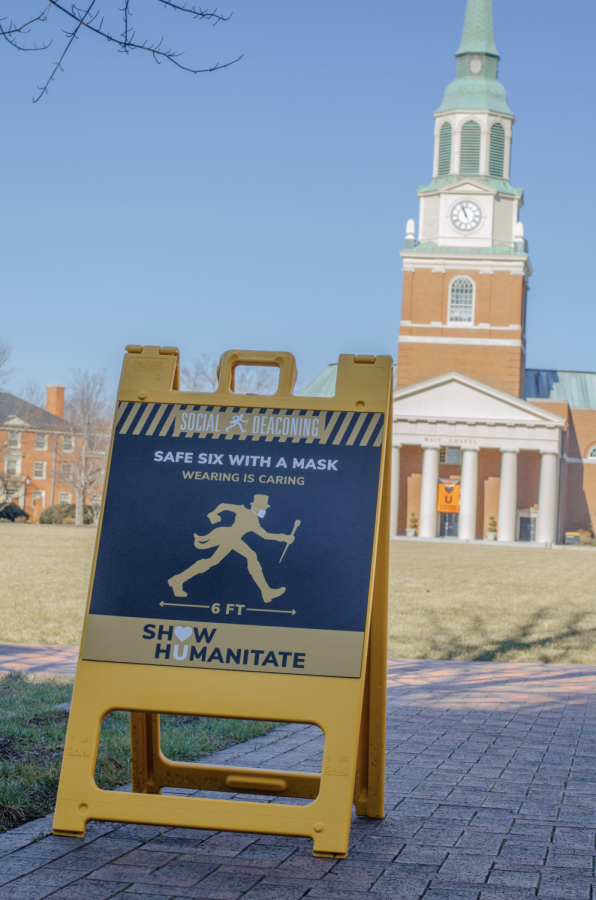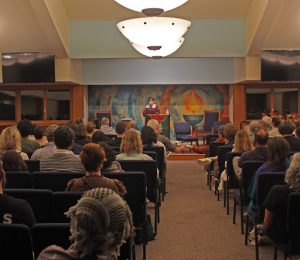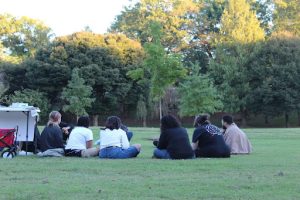University is equipped to handle COVID-19
New protocols for the Spring 2022 semester show readiness for possible COVID-19 outbreaks
Last year, COVID-19 policies were ambiguous and difficult for students.
January 13, 2022
It’s your third day of quarantine and you sit in your dimly lit room with mismatched socks and shoes scattered across your unvacuumed floor. Dust has accumulated and settled in corners, floating up as air flows through your open window. Begrudgingly, you shift a few feet from your bed to your desk to sit in your gray, pilling swivel chair. As you slash another red tick mark across your calendar, the knowledge that you have one less day in quarantine brings a brief grin to your face.
These somber descriptions were a familiar reality for many Wake Forest students during the 2020-2021 academic year. Students who tested positive for COVID-19 were isolated for 10 days after receiving their test result, with the university renting rooms at the Best Western Plus Hotel on University Parkway, as well as the Hawthorne Inn, in anticipation of possible case surges.
Individuals who would report any symptoms of exposures on their daily SneezeSafe survey were asked to isolate or begin their 14-day quarantine immediately. COVID-19 cases were also found through mandatory weekly random student testing. These results were updated daily and subsequently analyzed. Any confirmed trends were shared with the Wake Forest community through the university’s COVID-19 Dashboard. It is important to note that the worst spike in cases occurred during February 2021, when no one was vaccinated.
Although such lengthy quarantines and hotel isolations were necessary precautions at the time, we are now entering the Spring semester of 2022 with Omicron, a new and more contagious variant of COVID-19. With almost 97% percent of the student body vaccinated, and Wake’s new booster shot requirement, new protocols have been enforced and fully in-person classes have resumed after students’ return to campus from Winter Break.
Provost Rogan Kersh recalled the successful application of safety protocols following the outbreak of the Delta variant during the Fall semester. He specifically noted that the Wake Forest community followed CDC guidelines, while also remaining in close communication with their own infectious disease experts at Wake Forest Baptist Health. Kersh applauded student and faculty members alike for their accepting response and unwavering compliance to indoor masking and other protocols, crediting the university’s completion of a full semester of in-person classes to high vaccination rates and indoor mask compliance.
With that being said, families are beginning to wonder if Wake is doing enough to prevent a future outbreak on campus. To combat natural parent anxieties, Kersh has assured the Wake Forest community that COVID-19 cases will be monitored and any protocol decisions are subject to change as cases progress. Following the recommendation of public health advisors, Kersh and the administration came to the decision that students must receive their COVID-19 booster shot to return to campus and mitigate the potential spread of the virus.
Many students support the university’s decision to continue with fully in-person classes. “In-person college life brought new challenges [in comparison to] the experience of online learning but was exponentially more fulfilling and rewarding,” sophomore Abby Bermeo said. Bermeo tested positive for Omicron over Winter break and was cared for at home. However, her symptoms were mild, and she believes that if she had tested positive at school, she would’ve been able to manage the virus herself. “If I didn’t know it was COVID-19, I would’ve barely counted it as a cold,” said Bermeo. She received her booster shot back in December.
College should remain on campus, and with the preventative measures that students and faculty alike have taken prior to returning this Spring, managing any possible case outbreaks is a reasonable and attainable goal.












